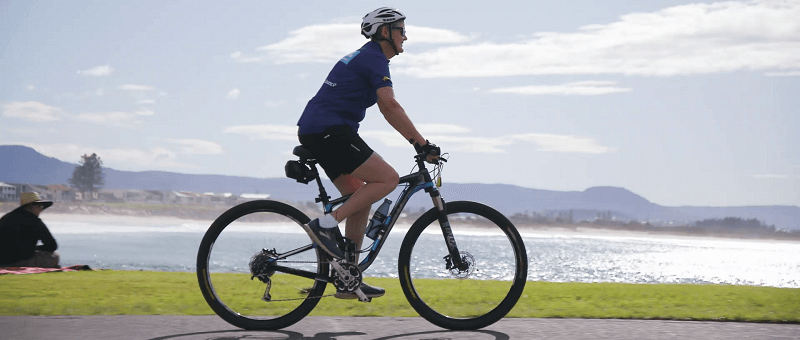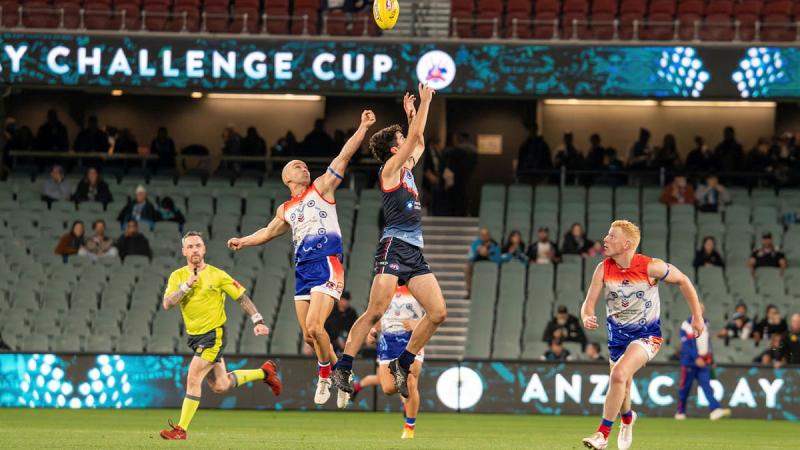
I’m 61 years old and I am going to die. I will not survive this cancer.
People often don’t know how to talk about cancer and dying. That kind of honesty isn’t for everyone, and I know it makes some people uncomfortable. But I don’t want the awkwardness that comes with pretending that it isn’t happening or that the outcome will be any different.
I think that like so many other issues in life, we can deal with cancer better when it’s out in the open.
I was diagnosed with stage 4B ovarian cancer on Christmas Eve 2019. Stage 4 means the cancer is advanced and has spread to other organs and areas of the body – it’s essentially the most severe form of cancer.
I don’t really remember Christmas Day, it’s a blur, but I know that my husband Tony and I told our two adult children Mark and Michelle that day that I had cancer.
I was told if chemotherapy did not work, I would only have six weeks to live. Even back then, I never thought, “why me?”. So many people are affected by cancer, why not me?
I’ve thought a lot about what I want people to know – about what it’s like having terminal cancer, and if I’ve learnt anything during this rollercoaster.
I hope that if you’re also going through terminal cancer, or you love someone who is, my thoughts can help and comfort you.
Life is still beautiful
A lot of people are understandably afraid of cancer. You can’t see what’s going on inside your body and then, suddenly, you’re transported from the world of feeling great to the world of the chronically ill. To the world of hospital beds, multiple surgical procedures, admissions to emergency via ambulance, chemotherapy, numerous blood tests, scans and medical appointments. You are no longer the last person to leave social gatherings and you feel your body is no longer your own.
But I don’t want people to be afraid of cancer. Life isn’t any less beautiful if you have cancer – I still get the same joy out of being in nature, spending time with my family and friends, getting on my bike and in my kayak. I still get so much pleasure out of living, even if it’s just feeling the cool air on my face.
Cancer is a rollercoaster, but I want people to know that you can still live as if you’re living and not as if you’re dying and you can still get the positive out of every day. I always look at the most positive thing in each day, not the negative.
One way that I manage this situation is by repositioning all the changes as normal. Bald Anne is normal Anne. Tired Anne is normal Anne. Anne on chemotherapy is normal Anne, and Anne having surgical procedures is normal Anne. This isn’t something that’s just happening to me – this is normal Anne now.
My treatment teams have played a huge role in keeping me feeling positive and strong about life. Every single cancer nurse, oncologist and surgeon have been wonderful and I feel so fortunate to be receiving their care.
Your relationships change in unexpected ways
It’s true – when you have cancer, your priorities change. It makes you think about what’s important in life and what’s not.
Not all the changes will be positive. Not everyone will support you during the very tough times, and some people will even abandon you – I’ve lost a friendship during my cancer rollercoaster. Cancer is a lot for everyone to come to terms with, for you and for everyone around you.
Be kind to yourself – at times it’s an emotional as well as physical rollercoaster. As a cancer patient, if you can be open and honest about your experience, you can help guide those around you. And if it doesn’t go to plan, don’t beat yourself up.
At the same time, as some abandon you, many other people will give you fantastic support – and they won’t always be the people you expect.
My family, friends and local community are an incredible support, but I’ve also had strangers do the most incredible things for me.
I started chemotherapy in January 2020. A week later, a Turkish Muslim family were having a picnic across the road from my house. They asked me if their children could pat my dog, and when we were chatting, I told them that I’d just started chemo and was going to lose my hair in the next week.
I asked this family if they could show me how they tied their headscarves. They couldn’t take their head scarves off in public, but they were more than happy to show me how they tied them demonstrating with serviettes.
Two weeks later, there was a knock on our front door. Ayse and her husband Ahmet had driven all the way from Liverpool in Sydney to Lake Illawarra. They’d brought me some new scarves, and Ayse taught me how to wear them.
Then, when Tony and I were kayaking at Tuross Lake, I met two more beautiful strangers, Anne and Kerrie. They saw my bald head and we started chatting about my cancer. That night, when Tony and I went to dinner and went to pay for the meal, the restaurant owner told us that Anne and Kerrie had already come in and paid for our meal whilst we were eating. Yet another beautiful act of kindness.
We’ve stayed friends with Ayse, Ahmet, Anne and Kerrie.
I want to keep moving and achieving
Each day I like to achieve something for myself, something for the household and something for the community. If I do these three things, it gives me a fantastic sense of pleasure.
For me, it’s getting out and doing exercise in the morning, which I find helps manage the side-effects of the chemotherapy. It’s not about being the fastest, it’s about the pleasure I get from being outdoors and doing what I love. Being out in nature helps me immensely. There are many days, I don’t feel like getting out of bed, and the easiest thing to do is stay in bed. My body tells my brain that I can’t do it.
But when I rise above that and I exercise, my brain tells my body that it can do it. Riding my bike or getting out on my kayak gives me an incredible sense of pleasure and achievement – if I can cycle or go for a paddle, I know I can get through and rise above the other challenges ahead of me.
For the household I try and achieve at least one of the following: online shopping, cooking, gardening, caring for my family and dog. Something where I feel like I’m contributing.
The thing for the community doesn’t have to be big – you don’t have to be a community leader or volunteer every day. For example, the other day I spoke to someone in the park who was lonely.
It can be as simple as engaging with someone else and making their day better. Your community could even be your friends and family.
You don’t need to stop saying my name
When I die, I would like my family and my friends to still take me with them in their hearts. I want them to say, “Mum would love it here”, or ask “What would Anne say about that?”.
Of course, they will feel extremely sad when I die, because they love me, and I love them. But I never want them to stop talking about me and talking to me.
One of the hardest things that I’ve said to our children is that if Tony meets someone else, I want them to embrace the new person in his life. It’s important for me that Tony is still able to live the best he can.
I often think, who is this more difficult for? If it was Tony dying, how would I handle it? Not as well as Tony does, I suspect. Tony’s love and support of me is impossible to measure.
Mark, Michelle and her fiancée Scott love and support me so much and are so brave under these difficult circumstances.
You need to be your own advocate
My diagnosis followed months of back and loin pain. I was initially diagnosed with a blocked ureter and had several procedures, but I knew something more sinister was wrong.
I had to keep pushing for answers and requesting more scans from the original specialist, until finally another doctor stepped in and helped by ordering me a PET scan, which showed that I had widespread cancer.
I was told things were normal for my age and I wasn’t showing any cancer markers. If I hadn’t advocated for myself, I would already be dead. You know your body best – don’t ever stop pushing if you’re not happy with what’s happening.
I’m not giving up
My cancer is spreading and there are some days when I am in a lot of pain. But for as long as I can, I’m going to live as if I’m living not as if I’m dying. I’m going to keep cycling, kayaking and enjoying nature as I always do.
I am still taking this cancer beast by the horns and currently trying a different chemotherapy regime.
Life is far too beautiful and unexpected to give up on. A while ago, I was down by the water, and I saw a pelican standing on the shore with its wings outstretched. I stood behind it, held out my arms at the same time, and I felt the greatest sense of freedom wash over me.
I’m not giving up on life – life has to give up on me.
Love,
Anne Royters
If you are affected by cancer and need information or support, please call Cancer Council’s free and confidential support line on 13 11 20.








